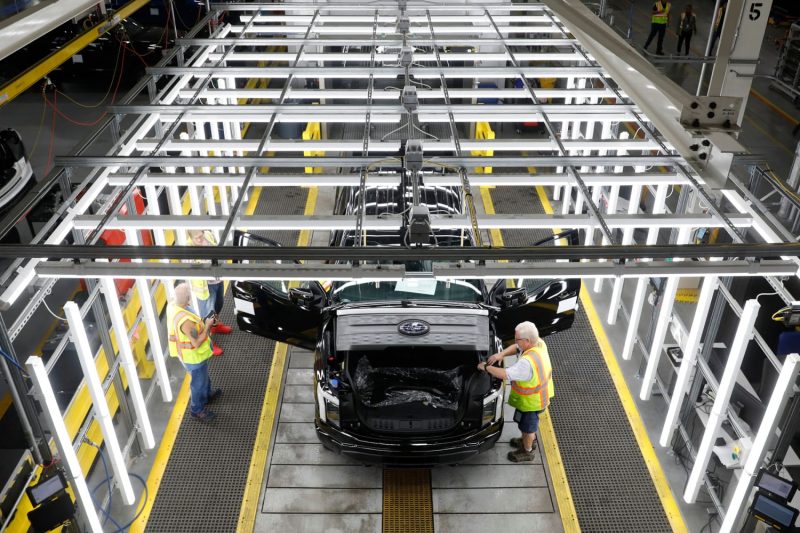Ford announces changes to its electric vehicle strategy
Ford Motor Company has recently made significant changes to its electric vehicle strategy, causing a delay in the construction of a new EV plant and the cancellation of an electric three-row SUV. This shift in focus underscores the complexity and competitiveness of the EV market.
The decision to delay the construction of a new EV plant in Kentucky comes as Ford re-evaluates its production plans amidst a rapidly evolving automotive landscape. The company’s move to prioritize its existing facilities and adjust its manufacturing strategy reflects the necessity for flexibility in responding to changing market demands. Ford’s willingness to adapt and reallocate its resources highlights its commitment to staying competitive in the EV market.
In line with this revised strategy, Ford has also decided to cancel the development of an electric three-row SUV, opting instead to focus on more popular models and emerging trends in the EV market. This decision demonstrates Ford’s willingness to make tough choices in order to prioritize profitability and market relevance. By shifting its focus to models with high consumer demand and growth potential, Ford aims to solidify its position as a key player in the evolving electric vehicle industry.
The cancellation of the electric three-row SUV is not indicative of a retreat from the EV market by Ford. On the contrary, it signals the company’s intent to streamline its product lineup and concentrate its efforts on vehicles that are likely to resonate with consumers and drive growth. This strategic move aligns with Ford’s commitment to sustainable mobility and environmental stewardship, emphasizing the importance of offering compelling electric vehicle options to meet evolving customer preferences.
Ford’s decision to delay the construction of a new EV plant and cancel the electric three-row SUV underscores the challenges and opportunities present in the rapidly evolving EV market. As competition intensifies and consumer preferences shift, automakers must remain agile and responsive to changing market dynamics. Ford’s strategic adjustments reflect its understanding of the need for nimbleness and adaptability in navigating the complexities of the electric vehicle landscape.
In conclusion, Ford’s recent changes to its electric vehicle strategy highlight the company’s proactive approach to staying competitive in the evolving automotive industry. By re-evaluating its production plans, reallocating resources, and focusing on high-demand models, Ford is positioning itself to thrive in the dynamic and fast-paced world of electric vehicles. As the market continues to evolve, Ford’s willingness to adapt and innovate will be key to its success in the increasingly competitive electric vehicle marketplace.

